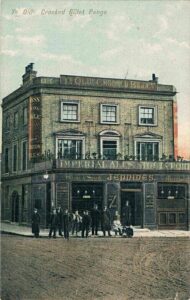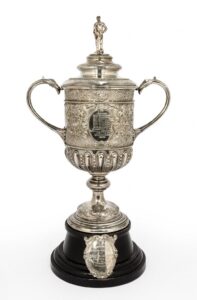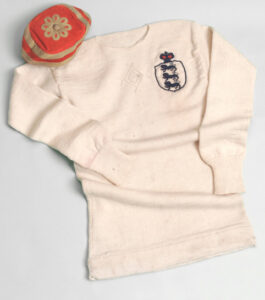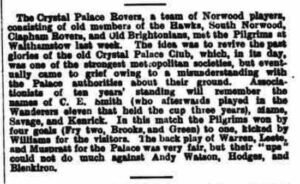Key dates in the history of the first Crystal Palace FC
1861
Crystal Palace Football Club is formed by members of the Crystal Palace Cricket Club. A typical sports club of this period, it is independently run with its own committee and membership.
1862
The footballers play their first game away to Forest FC in March. Their home fixtures take place on part of the Crystal Palace Park cricket ground and they host Forest FC on this field a month later.
1863
Officials from Crystal Palace FC help found the Football Association with 10 other clubs and they agree on the first set of laws for the game.
1864
 CPFC now play matches in a field behind the Crooked Billet pub, in Penge (pictured). Their February meeting with Barnes is only the second-ever FA-sanctioned football match.
CPFC now play matches in a field behind the Crooked Billet pub, in Penge (pictured). Their February meeting with Barnes is only the second-ever FA-sanctioned football match.
1866
The club is without a home and play the 1866/67 season at opposition grounds.
1867
Palace make a return to Crystal Palace Park as the venue for their home games.
1871
 They are the original participants of the FA Cup and Palace captain Douglas Allport helps source the original trophy (pictured). The team reaches the semi-final with a defeat to the Royal Engineers after a replay.
They are the original participants of the FA Cup and Palace captain Douglas Allport helps source the original trophy (pictured). The team reaches the semi-final with a defeat to the Royal Engineers after a replay.
1872
Palace forward Charles Chenery is selected for England in the world’s first-ever football international against Scotland.
1873
Alexander Morten plays as goalie for England in the second-ever international. He is named captain and, aged 41, remains the oldest player to make a debut for England.
1875
The team’s final match at the Crystal Palace is against Reigate Priory in January. CPFC play their last documented game away at Barnes in December.
1876 
Keeper Arthur Savage and forward Charles Eastlake Smith are capped for England’s fixture with Scotland. Crystal Palace FC disbands with no further matches reported.
1883
A team calling itself Crystal Palace Rovers plays one recorded game against the Pilgrims. The match report in the Athletic News (pictured) said this was an effort to revive “the past glories of the old Crystal Palace Club which, in its day, was one of the strongest metropolitan societies, but eventually came to grief owing to a misunderstanding with the Palace authorities about their ground.”

